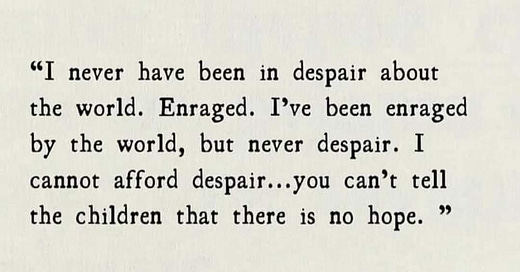Why you should get to know grad students
My favorite thing about conferences, aside from seeing old friends and colleagues, is getting to know grad students.
There are so many great reasons to get to know grad students, and even more if your lab doesn’t have them.
First of all, I’d like to remind everyone that grad students are both professional scientists and individual human beings. Grad students are not interchangeable pieces. They don’t have as much experience as senior researchers, but most of them have dedicated their careers to this fun endeavor of science. Moreover, grad students do the same job as faculty – teaching, research, and even service (seminar series, running journal clubs, and stuff in the lab that is expected of them). My lens is adjusted so that I see that grad students are just like me. I’m just older than most grad students and, now, more grey. From there, the differences are minor unless it’s my position to mentor a student.
If I’m not a mentoring a grad student, then I am this person’s colleague and I will treat them with the appropriate level of attention and respect. Even though some early grad students might not see this in themselves.
I have made number of good friends – or perhaps close colleagues – because I’ve made the time to build these relationships. Though I’m not in grad school, this shouldn’t keep me from continuing to make friends with grad students.
Grad students are great because they are excited about their projects and love to talk about them. By hearing about what they’re working on, you not only get an introduction to their own work, but also all of the recent ideas and discoveries that have contributed to their ideas. Hearing the 10-minute intro to a dissertation is drinking a thick rich idea smoothie, from the person who has probably read more about that combination of ideas than anybody else.
Grad students are great because they are often eager to hear about what you’re working on. There are two big benefits to this. First of all, they comprise a potential audience open to new ideas and your work could be influential. More importantly, if they hear about your project in some detail, it’s likely that they’ll offer a separate perspective, new insights, and relevance from their own line of work. They might suggest a fancy new kind of analysis, a new set of things to measure, or other people who might be interested in your datasets of whom you’re not aware. They might know of datasets that would shed light on your own and they could put you in touch.
Grad students are great to hang out with if your lab is made up of undergraduates, as a resource for your students. It’s not likely that your undergrads are going to pal around with your PI friends at conferences that much, but they are more likely to get to know the grad students as see their successes as a possible model for their own next steps. They also can advise about the whole grad school application/selection process, as they’ve done it recently.
There is another practical benefit from getting to know grad students well. You become a deeper part of the field when you get to know its future leaders before they are breaking new ground. When you befriend a the current generation of grad students, that means that you’ll be friends with the next set of junior faculty. Even mentioning it sounds mighty careerist, but it nevertheless is a long-term positive.
I enjoy people for who they are, and when grad students are doing good work I go out of my way to compliment them. It costs you nothing to mention the truth but it makes a big difference to someone who is just starting out. I’ve tried to be outgoing in this way ever since grad school, and I’ve made a point to not change this as I’ve gotten older.
When I do see old friends at conferences, I met most of them during grad school days (either mine, theirs, or both of ours). While most other professors at an obscure school like mine would be unknown to a new generation of scientists, I’m at least not wholly anonymous, because I’ve continued to make the effort to know people. Being friendly and supportive of your colleagues is itself its own reward, and is one that compounds itself over time. That’s a nice side benefit of being friendly.








